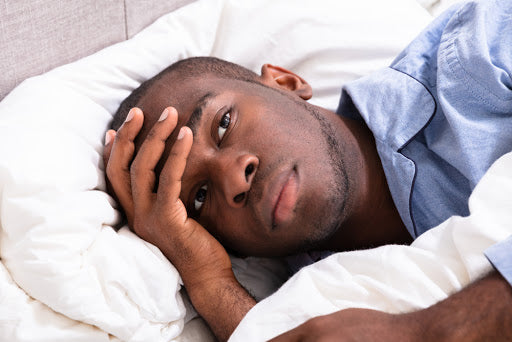While there continue to be mysteries surrounding the need for quality sleep, sleep disorders - especially sleep apnea - are fairly well understood by specialists. The general consensus is that, no, there really isn’t a “cure” for sleep apnea—especially for those diagnosed with moderate or severe apnea. However, there are treatment options available to those with sleep apnea to reduce or possibly eliminate their risks and symptoms.
Lifestyle Changes Can Help Alleviate Symptoms
There are a few lifestyle changes that are fairly well known to help reduce your risk of sleep apnea, or, in some cases, remove risks and symptoms for those with more mild sleep apnea. Your best bet to start reducing your risk for apnea related strokes or high blood pressure is weight loss. While sleep apnea affects people on every BMI level, those with higher BMIs are at increased risk. Losing weight through controlled diet and exercise can remove the existing pressure on your throat and reduce obstructions.
The other change you’ll want to consider is to quit smoking. Smoking is not known to be a direct cause for sleep apnea, but decreased effectiveness of the lungs or lung capacity certainly does not help. Smoking is known to cause inflammation in the throat, lungs, and chest which can easily worsen apnea symptoms.
Surgery is a Viable Option for Some
There is still some skepticism surrounding the effectiveness of surgery to alleviate sleep apnea, but there have been some promising studies in recent years. Currently, the most common procedure to treat sleep apnea is uvulopalatopharyngoplasty, which surgically removes throat tissues that can obstruct the airways in deep sleep. But statistics show that this procedure only helps patients roughly 60% of the time.
Though less invasive than uvulopalatopharyngoplasty, upper airway stimulation therapy is a newer treatment that implants a series of sensors beneath the skin of the throat and chest areas. During sleep, should the sensors detect obstructions, the implants send some mild stimulation to help clear the obstruction and reinstate normal breathing. So far, this surgery is showing to be quite effective, but it is very expensive.
Oral Appliances Might be Right for You
For those who suffer from mild to moderate sleep apnea, oral appliances can be an effective treatment option. Resembling mouth guards, the appliances position the jaw to allow for unobstructed breathing by preventing the jaw from relaxing too far back in the throat. While the FDA has approved the use of these dental appliances when prescribed by a dentist, many of the over-the-counter appliance options are not FDA approved for sleep apnea. Be sure to do significant research if you’re interested in pursuing this treatment option.
Best Treatments are CPAP or AutoPAP Machines
While many experience anxiety or stress around the decision to treat their sleep apnea with continuous positive airway pressure (CPAP) or automatic positive airway pressure (AutoPAP) machines, these devices remain the most effective treatment for those suffering from all levels of sleep apnea.
For those curious about the differences between these two machines, the CPAP provides a continuous stream of light air pressure that prevents obstructions to the throat and chest during sleep, preventing apnea events. The AutoPAP is a newer, more innovative option that senses obstructions or disturbances in your breathing and provides an increasing amount of airway pressure until the obstruction is eliminated. This is an extremely effective treatment for those experiencing severe snoring, apneas, and hypopneas during sleep. Some newer AutoPAP machines include built-in humidifiers to combat dryness that can result from the increased airway pressure.
While there are several different treatment options for those suffering from all levels of sleep apnea, be sure to do significant research on the option that feels most right for you. Home sleep tests are a great way to find out what sleep issues you may have. Your results will be interpreted by a board-certified sleep physician and will shed light on the best course of treatment for your sleep apnea.

